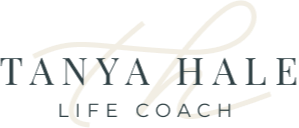Being Confident
Let's talk about two kinds of confidence:
-
Confidence that you can do something you're already good at, such as getting spoonful of soup into your mouth, and
-
Confidence to do something you've never done before and yet you know you will figure it out, such as speaking up to create some healthy boundaries with a loved one.
Most of us have loads of the first kind of confidence just because we have a lot of past years of developing skills that we are now capable of doing.
But the second kind of confidence, confidence in our SELVES, is tougher to come by.
Tougher because we get a lot of primitive brain pushback when we work to create this type of confidence.
To protect us, our primitive brain is programmed to do three things for us:
-
Avoid pain
-
Seek pleasure
-
Conserve energy
When we set out to do things we haven't done before, our primitive brain starts to freak out.
-
"I don't like it when people judge me!" (avoiding pain)
-
"I'd rather eat this bag of chips than get up and make something healthy." (seeking pleasure)
-
"Let's just stay in bed and get some extra sleep instead of exercising as planned." (conserving energy)
In order to counter our primitive brain, we have to engage our pre-frontal cortex, our thinking brain, to make a decision to do what we ultimately want to do.
What does all this have to do with confidence?
Well, confidence is what happens on the outside when self-trust is happening on the inside.
When we make a plan to get up and exercise in the morning, we are providing an opportunity to build trust in our SELVES, or not to.
If we get up, our self-trust grows, if we stay in bed, we lose trust in our ability to obey ourselves.
And trusting ourselves to do what we say we're going to do creates confidence in ourselves.
It allows us to show up the way we want to.
Here's an example:
If you are asked to speak in a meeting, you may not feel confident in your ability to give a good presentation.
But if you spend time reading, pondering, and preparing, then you will present some good information.
You've built self-trust in the preparation time you've spent, and even though you may have been nervous, you showed up and you gave the presentation.
This builds, even if just slightly, confidence that next time you are asked to speak or give lesson, that you know how to prepare and that you can show up and do a good job.
And we just keep building our confidence a piece at a time as we create self-trust.
Because ultimately, our success in life is determined by how well we obey ourselves.
This is how we build trust with ourselves, and this is how we create greater confidence in our SELVES.

